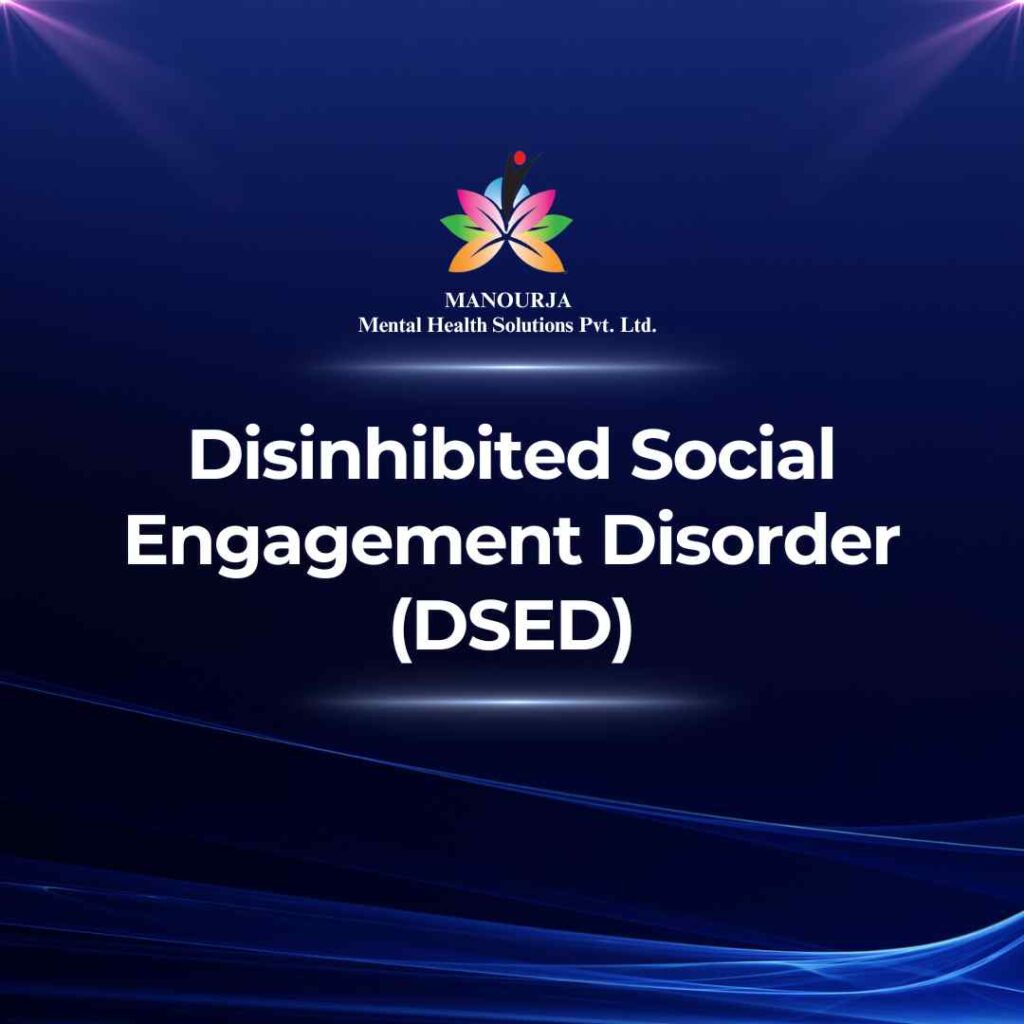Disinhibited Social Engagement Disorder (DSED)

Disinhibited Social Engagement Disorder (DSED) is a condition identified in children who exhibit an overly familiar and inappropriate interaction with strangers. This disorder arises from a history of social neglect, inadequate caregiving, or changes in caregivers that prevent the formation of stable attachments during early development. Unlike Reactive Attachment Disorder (RAD), which also stems from problematic early attachments but often results in inhibited and withdrawn behaviors, DSED is characterized by a lack of inhibition in interactions.
Symptoms of Disinhibited Social Engagement Disorder
Children with DSED do not show the wariness or discomfort that most children display around unfamiliar adults. Key characteristics include:
Overly Familiar Behavior
- Children with DSED might approach and interact with strangers in a way that is unusually bold or overly familiar for their age.
- They may exhibit behaviors like hugging strangers, asking overly personal questions, or being willing to go off with people they do not know well.
Diminished or Absent Stranger Anxiety
- Unlike their peers, children with DSED may not show typical signs of discomfort or fear when approached by unfamiliar adults.
- This lack of reticence can often lead them into unsafe situations.
Indiscriminate Affection
- These children may show a similar level of affection to strangers as they would to their primary caregivers, without the normal distinctions that most children naturally make.
Violation of Social Boundaries
- Children with DSED often do not perceive or adhere to normal social boundaries, which can be perceived as inappropriate by others.
Forms of Disinhibited Social Engagement Disorder
DSED is generally considered a singular disorder but can vary in the severity and specific types of behaviors exhibited. The core feature across all cases is inappropriate interactions with unfamiliar adults.
Treatment of Disinhibited Social Engagement Disorder
Treatment and intervention for DSED focus on creating supportive and stable environments and teaching the child appropriate social boundaries. Strategies include:
Consistent Caregiving
- Providing a stable and consistent caregiving environment is crucial. This helps the child develop a sense of security and trust in their caregivers, which is foundational for appropriate social engagement with others.
Behavioral Therapies
- Parent-Child Interaction Therapy (PCIT): This therapy enhances the parent-child relationship through interaction. It helps parents develop techniques to manage their child’s behavior effectively while fostering emotional and physical safety.
- Cognitive-Behavioral Therapy (CBT): For older children, CBT can be adapted to focus on understanding and managing their interactions with strangers, including recognizing and respecting social boundaries.
Education on Social Skills
- Structured social skills training can be part of therapy to explicitly teach the child what kinds of interactions are appropriate with strangers versus known individuals.
School-Based Interventions
- Coordination with school staff to ensure that the child’s behavior is monitored and that interventions are consistent across settings. School counselors can provide additional support and reinforcement of skills.
Safety Planning
- Teaching the child personal safety skills is crucial to prevent them from wandering off with strangers or placing themselves in risky situations.
Successful treatment often requires a multi-faceted approach involving caregivers, therapists, and school personnel. Early and consistent intervention is key to helping children with DSED learn to navigate social interactions more appropriately, ensuring their safety and improving their ability to form healthy relationships.
At MANOURJA, we believe in the transformative power of counseling. Our experienced therapists offer a safe and supportive space where you can explore your thoughts, emotions, and challenges. Through personalized counselling sessions, we’ll work together to develop coping strategies, build resilience, and achieve lasting positive change. Discover the path to a healthier, happier you with MANOURJA counselling services.
MANOURJA Rehabilitation Services
At MANOURJA, we’re dedicated to helping you in rebuild your life, after difficult times. Our rehabilitation services focus on understanding what you need to move forward, whether you’re recovering from addiction, trauma, or any psychological – social challenges. We create personalized plans, that are all about helping you, regain your strength and find hope again. With a caring team by your side, you’ll have the support to make real progress and take steps toward a brighter, healthier future.
